Camping is a popular recreational activity that is about spending time in nature, including sleeping and cooking food. However, there are many variations of camping and that is why it means different things to different people. For example, many people understand camping as living in tents, while for others it might mean traveling in a minivan. So, what is camping exactly?
Another question touched on in this article is the history of camping. When and by whom was this type of leisure founded? Read on, and you will find all the necessary information on this subject.
What is camping?
In the most general terms, camping can be described as the escape from the everyday urban routine to the date with nature and sleeping there for one or more days. For different people with their needs and resources, it can look different ways. For some of them, comfortable camping is only possible in tents, for others it can mean getting into an RV and driving to the seaside. Going to a luxury retreat in nature can also be considered a type of camping.
Still, the common between different understandings of camping is that it is going to nature, either by oneself or with a group of people (see where you can buy a top-rated 8-person tent). But to make a universal formula of what camping must look like and in which conditions and with what specific gear carried out is rather not possible. So, to define what camping is, it's enough to say that it is living outside the home in nature for some time. Still, this definition obviously needs some specification.
The Exact Signs of Camping
Given that there are so many types of camping nowadays, sometimes people can even mix up camping with another leisure activity. On the other hand, there also are those who urge that camping is only about doing certain things, which make camping "real" and otherwise, it cannot be considered true. So, it's time to give more specific signs of the camping activity which won't ever allow you to mix it up with anything else. So, it's possible to say that you were camping if you:
- Were in nature and out of civilization
- Made a campsite (which can be either a tent or a recreational vehicle, or it can even be in the open air)
- Spent at least one night in it
And so far, that's it. Thus, camping is not about any strict requirements for the gear you take with you or the clothes you put on or even things that you do while camping. Because all in all, people's idea of comfort varies, and it's natural to strive for comfort in any condition. The sense of camping can be formulated in these 3 basic things: being in nature, making a living place (campsite) there, and spending in it at least one night.
If you did those three things, you could confidently say that you were camping. Everything besides it is just about the specifics of a certain instance. Camping is done not by gear or tents but by people's will to get out of their urban space into pristine nature. This will can be converted into different gear and activities.
The History of Camping
When did all that start and how did it happen that people sometimes started preferring to take rest in wild nature than in civilized restaurants or cinemas? It can be said that camping began when people started living urban lives, i.e., this activity became popular thanks to industrialization. Before cities appeared, camping was in a sense a common lifestyle. But of course, as a recreational activity camping started not that long ago. The founder of it was the late 19th-century British traveler and explorer Thomas Hiram Holding.
He was biking through Ireland and wrote a book named "Cycle and Camp in Connemara" based on his impressions and experiences. Then, he also founded the first in history camping club in 1901.
The time for that very first camping confirms the suggestion that camping started with industrialization. Because Mr. Holding conducted his first camping exactly during the time of intensive urbanization - between the late 1800s and early 1900s. In this period of rapid city growth, when factory smells became omnipresent, people started missing nature and camping appeared.
It's also characteristic of this period that the Boy Scouts movement started in 1907 which increased the popularity of camping. Today, there are lots of camping resources and gear available, so everyone interested in camping can join the camping community just right away.
Summary
In the latter days, camping became a dream for many. As it is the chance to distract from any problems in the everyday life, breathe the fresh air all day through and get generally fitter and healthier while living in the most natural for all living creatures environment - nature.
This recreational activity was first recognized between the end of the 1800s and the beginning of the 1900s during the start of the industrialization epoch. The first book on camping was "Cycle and Camp in Connemara" by T.H.Holding.
Camping is superb and beneficial for health activity. Still, many people do not dare to name their holidays as camping simply because they did not meet some of the "requirements". But setting up and then living in a tent is not a strict requirement for camping. As well as none of the other camping gear.
There are 3 mandatory things to consider in an activity such as camping: 1) it must be in nature 2) a campsite must be set up 3) at least one night must be spent inside.
© 2024 NatureWorldNews.com All rights reserved. Do not reproduce without permission.
* This is a contributed article and this content does not necessarily represent the views of natureworldnews.com
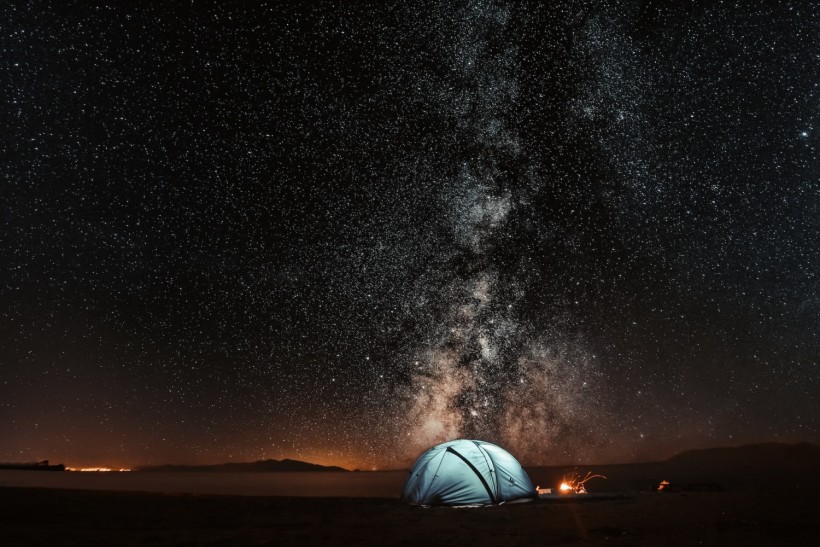
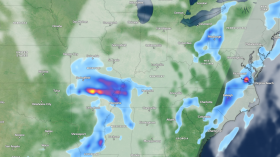
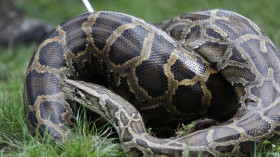
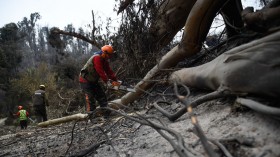
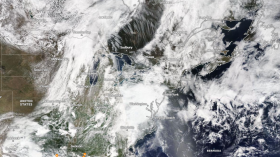
![Wildfire Activity in Wet African Tropical Forests Exacerbated by Deforestation, Climate Change [Study]](https://1471793142.rsc.cdn77.org/data/thumbs/full/70409/280/157/50/40/wildfire-activity-in-wet-african-tropical-forests-exacerbated-by-deforestation-climate-change-study.jpg)
